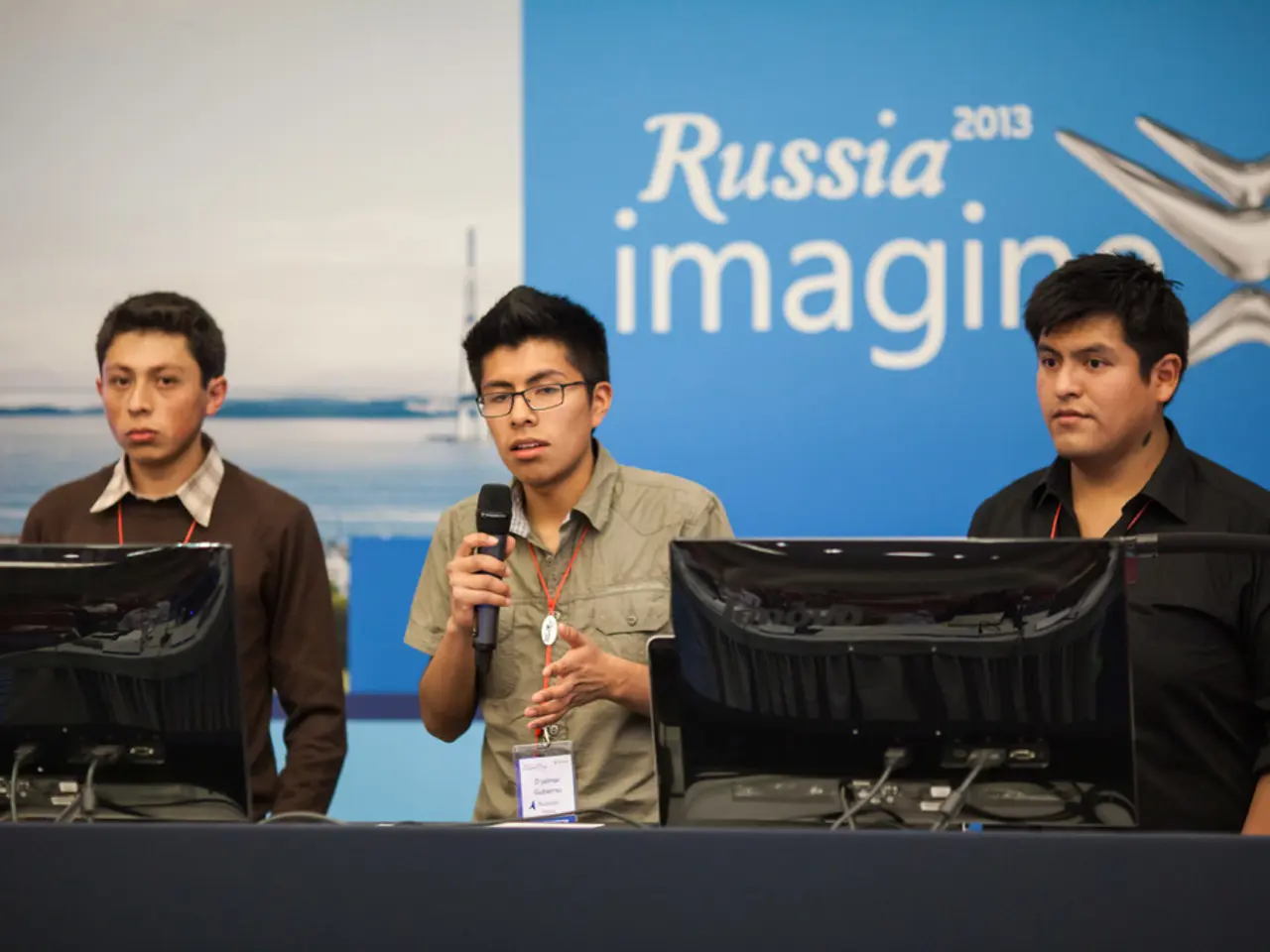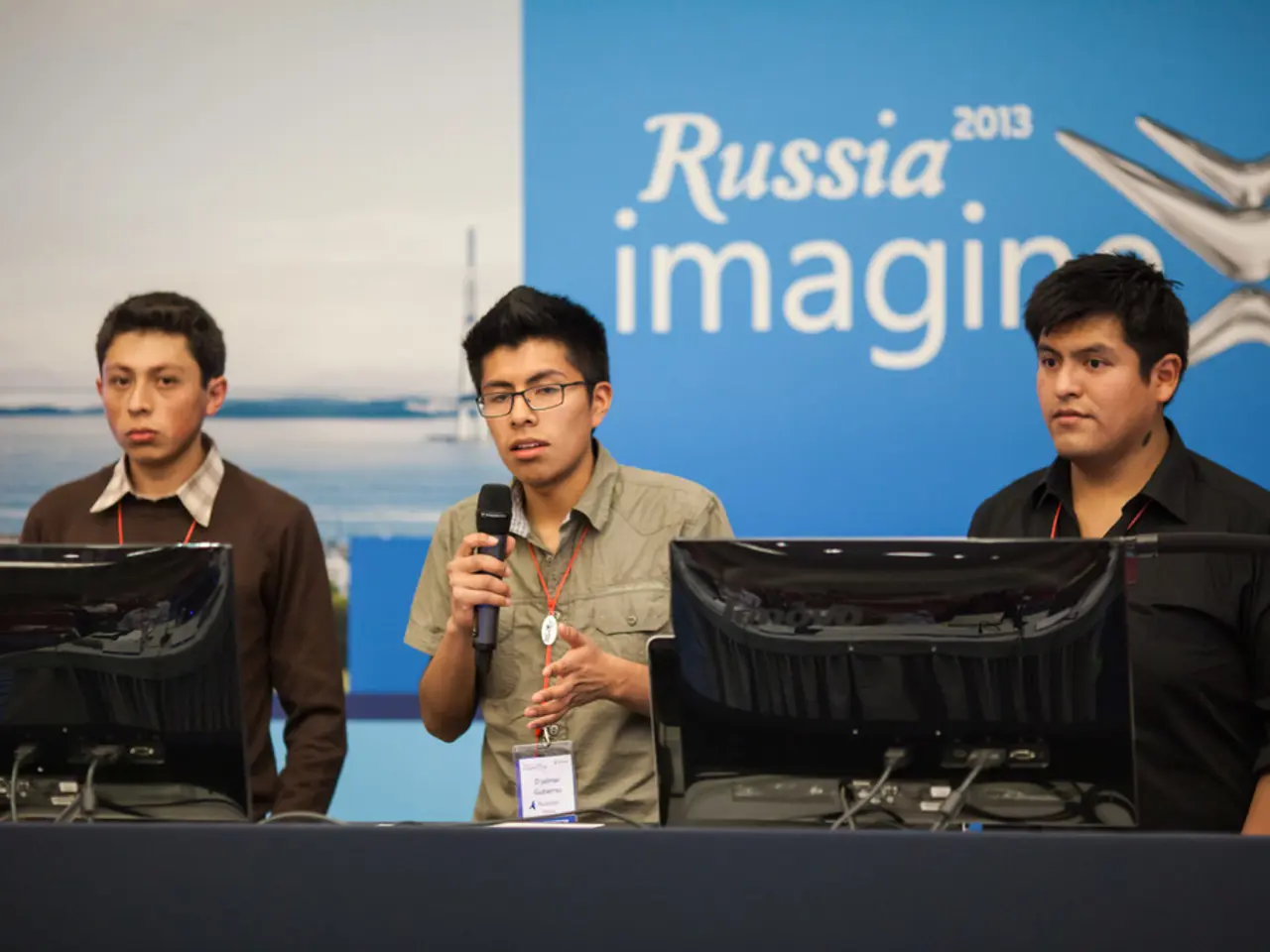Discussion on MWI Podcast: The Arctic's Perplexing Challenges from a Russian Perspective
In a recent episode of the MWI Podcast, John Amble was joined by Dr. Elizabeth Buchanan, the codirector of MWI's Project 6633 and author of the book "Red Arctic: Russian Strategy Under Putin." The conversation between John and Dr. Buchanan is a must-listen for anyone interested in understanding the complexities of Arctic politics.
Dr. Buchanan, an expert on polar security, shed light on the current state of engagement with Russia in the Arctic. Due to Russia's aggression towards Ukraine, including the February 2022 invasion, engagement has ceased, and a comprehensive sanctions regime and political isolation have been imposed. This has led to the suspension of Arctic Council activities for the duration of Russia's chairmanship of the organization.
The halt in Arctic engagement raises questions about the future of cooperation in the region. Dr. Buchanan explained that the Arctic, with its unique governance structures and ways of engaging with other states, is characterized by a delicate balance. The absence of engagement could lead to significant consequences, as she outlined.
Firstly, the military tension in the Arctic could escalate. Russia maintains a substantial military presence in the Arctic to protect economic interests, assert influence, and secure its strategic nuclear capabilities. The absence of engagement could lead to an unchecked Russian military buildup and claims, particularly in contested maritime zones like the Bering Strait. This could diminish NATO’s capacity to project power and monitor activities in the Arctic.
Secondly, the economic development of critical Arctic infrastructure could be stagnated or fragmented. Russia's Arctic ambitions extend beyond military presence, involving economic projects closely linked with China’s "Polar Silk Road" initiative. Halting engagement could hinder cooperative management and development of these shared economic corridors, pushing Russia to deepen ties with non-Western partners, increasing strategic rivalry.
Thirdly, the welfare of indigenous populations in the Russian Arctic could be at risk. The ongoing war and the breakdown in dialogue are likely to have a disproportionate impact on these communities, whose social and cultural survival is at risk due to conscription pressures and systemic neglect intensified by conflict-related instability.
Lastly, addressing climate security cooperation, as outlined by NATO’s plans, could become more challenging. NATO's intensified efforts to operationalize responses to climate change impacts in the Arctic are complicated by this growing strategic competition.
In summary, ceasing engagement risks heightened military tensions and escalations in the Arctic region, economic stagnation or fragmentation of Arctic infrastructure development, reduced Western influence allowing Russia-China cooperation to deepen, greater risk to indigenous populations’ welfare in the Russian Arctic, and challenges in addressing climate security cooperation as outlined by NATO’s plans.
These dynamics indicate that continued engagement, even if limited or recalibrated, is likely essential to managing Arctic security, economic development, and indigenous welfare amid ongoing geopolitical and military tensions stemming from the Ukraine war.
To listen to the full conversation, visit the MWI Podcast on Apple Podcasts, Stitcher, Spotify, TuneIn, or your favorite podcast app. The podcast can be rated or reviewed on its respective platform. The image credit for this article is from kremlin.ru, available via Wikimedia Commons. The article can be shared on Facebook, Twitter, LinkedIn, or emailed for offline reading.
Security in the Arctic is at stake due to the suspension of Arctic Council activities, which may lead to an unchecked Russian military buildup and claims in contested maritime zones. Therefore, continued limited or recalibrated engagement is essential to manage Arctic security, as the absence of dialogue could stagnate economic development, deepen Russia-China cooperation, pose risks to indigenous population's welfare, and challenge climate security cooperation as outlined by NATO's plans.
The delicate Arctic region, characterized by unique governance structures, warrants careful strategic planning and diplomacy, especially under the current state of heightened military tensions and political isolation stemming from the Ukraine war.







